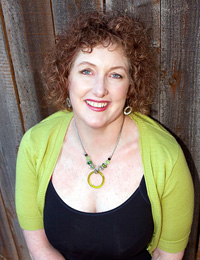
In my forties, after a lifetime of intermittent eczema (sometimes severe, sometimes very mild), a blood test finally told me that I was intolerant to wheat – most probably gluten – amongst a couple of other items.
I am not a coeliac, and give thanks for that every time I put food into my mouth. Coeliac disease seriously affects the villi in the intestines of sufferers, leading to bloating, nausea and long-term internal damage. For me, the effects of the intolerance are that I get eczema. The red, rashy, itching-behind-your-knees-and-elbows kind. The infected sores kind. The kind that makes your skin look sunburnt or as if you’ve had a severe allergic reaction to a sting. The kind that makes you feel like the elephant woman and makes you want to pull the covers up over your head and let no one see you. The kind that makes it hurt when you move because you’ve scratched yourself raw and your skin just has no give left in it. It’s not a pretty sight, and in my case, it took a long time, and a very sympathetic and informed doctor, before I found something approaching a solution.
I am generally not a complainer, and tend to get on with life as best I can and find the good in things. In 2010, it was very hard to do that after five rounds of antibiotics in four months, and a general feeling of malaise. Eczema is not a life-threatening disease by any means, but it can make you utterly miserable. What enabled me to discover that gluten was an issue for me? A blood test, called a RAST test. Doctors are often reluctant to refer patients for this test as it is expensive. In my case, my quality of life had deteriorated enough to qualify me, at least in my doctor’s mind. We tested for soy, whole eggs, various fish, dairy and wheat. Eggs, deep sea fish, some shellfish and wheat all came back with a similar (and very high) rating. I already knew about egg yolk (I am fine with the whites) but the others were all news to me. Fish and shellfish are easy enough to manage, especially if you’re only intolerant to them. The worst that might happen is my skin will flare up. Wheat, however, made my heart sink. My doctor couldn’t confirm if it was gluten or only wheat, so I knew I would have to eliminate both at least for a while (subsequent eating of gluten proved pretty conclusively that gluten was the culprit).
I thought at first it would be easy. Just avoid bread, and products with wheat flour. As is my norm, I hopped onto the internet where Google is my friend, and waited for it to point me to one of the no doubt many resources available online which would tell me all the things I needed to know – how to adapt recipes, where to buy substitutes, along with a selection of excellent recipes. After all, there are loads of coeliac or gluten-intolerant people around. I spent a lot of time browsing through blogs and although I found some excellent overseas blogs, there didn’t seem to be much locally that covered off everything I wanted to know. After a couple of days of complaining about it, glutenfreenz.wordpress.com was born.
I’ve come a long way in two years of blogging. One of my proudest moments was when I reviewed a restaurant and had some (constructive) criticism for them. Not only did the restaurant respond very promptly but on the strength of their response, one of my regular readers was able to take his coeliac wife out for a wonderful evening. I’ve learnt how to create and manage a blog, played with layout, results, widgets galore. I now have followers, and follow a number of other blogs. I even started a second blog, which is more about family and the world at large and not at all about food. You can find that blog at familymattersnz.wordpress.com if you’re interested
I look forward to sharing my gluten-free discoveries with you all in this great environment that Healthy Food Guide has set up. It is my very great privilege to be here talking to you, and I look forward to reading your stories and comments.
Lisa
For those wanting more information on coeliac disease, check out the NZ Coeliac Society website www.coeliac.org.nz.
This blog is the opinion and experiences of its author and should not be taken as medical or dietetic advice. Healthy Food Guide has not verified the content and cannot endorse any advice given. Healthy Food Guide recommends seeking professional health advice for specific complaints or symptoms.
www.healthyfood.com











